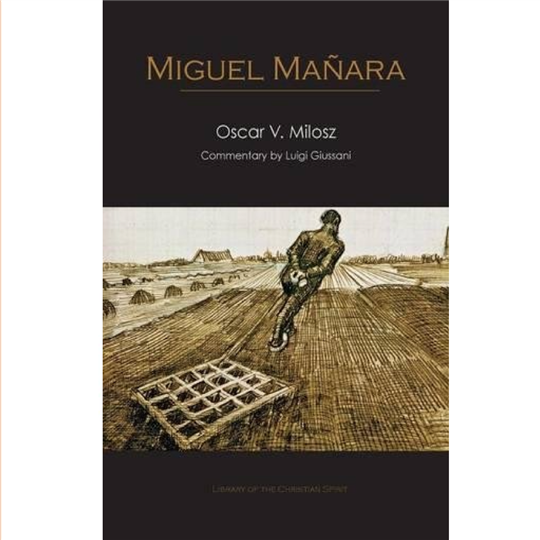
GS: Summer reading
One of the books proposed to GS students for summer reading is Miguel Mañara by Oscar V. Milosz. To perceive again what is at stake in life.Miguel Mañara
I can imagine my students, already sceptical about the Italian writers I teach in class, being offered a work by a Lithuanian playwright. The most diligent would go and look up where Lithuania is, a land of forests and lakes. At the age of twelve, Oscar Vladislas Milosz went to France, where his father moved for the 1889 Universal Exhibition that gave the world the Eiffel Tower. Here, he says, he was educated according to “the principles of the most naive and brutal free thought”. Who knows what his father was chasing on his journey from Czereia to Paris, and who knows what he must have thought when he read in the first act of Miguel Mañara, where the protagonist laments: "How short is this life for science!". We could interpret his lament thus: science – but in order not to be too angry with science we can think of that naive and brutal education of free thought mentioned above - can tell me at most that my life, on the scale of universal history, is a small, tiny fragment. But this does not “extinguish” or satisfy the protagonist of the playwright’s most famous work, which we will try to get to know a little.
In the first scene, Miguel Mañara - a man who really existed in 17th century Seville – is celebrating his thirtieth birthday in the company of some of his fellow diners. They, like him, also live following their vices, but no one can match him. A long list of women hangs from his conscience: duchesses, marquises, noblewomen, bourgeoisie, prostitutes. This is what defined the character, a descendent of the nobility who drags love "into pleasure, mud and death". But be careful: his is not a mere rebellion, but he unmasks the hypocrisy of those who are by his side, but would reject any moral judgement. His problem is not obeying written or unwritten laws, but he realized that he had not even managed to minimally reach something that could satisfy him. "I have lost Satan", says the protagonist, deprived of the very taste of evil, "I eat the bitter herb of the rock of boredom". Miguel's boredom is not just an abstract thought, a perception of intellect, but it is a very concrete "bitter herb", as if it were there on the table where Miguel is eating. Each “meal” has become similar in texture and taste to one of those salad leaves kept open for too long in the fridge. Miguel looks everywhere for a “new beauty, a new good that will soon satisfy”; even “a new pain”, that does not appease him either. "How to fill this abyss of life? What to do? Because the desire is always there, stronger, crazier than ever.” His thirty years of life can be summed up thus: in the insatiable search for something that satisfies, an "infinity of new lives" for there must be one, at least one, that fills that abyss.
From the bleak scenario in which Miguel's words in the first act take place, he goes on to “wake up suddenly in a beautiful room where everything is immersed in the discreet music of light.” It is a little strange to think that a new phase of life is comparable to a room, but let us make this effort to follow our character: let us imagine the room. A light, immense light, which illuminates every corner as if it were music. Then maybe some flowers in the window. No! Not flowers! Flowers are beautiful, but precisely for this reason "you have to let them live and breathe the air of the sun and the moon. It is possible to love perfectly in this world if you have the desire to kill love, or imprison it between panes of glass". No flowers, Girolama would say, the young girl who, standing in front of Miguel, is not afraid; on the contrary, she says, "I do not see what is so terrible" about his life. There, in front of her, his existence no longer seems so terrible. Miguel, the great lover, meets someone who will be able to light “a lamp in his heart.”
Mattia Gennari